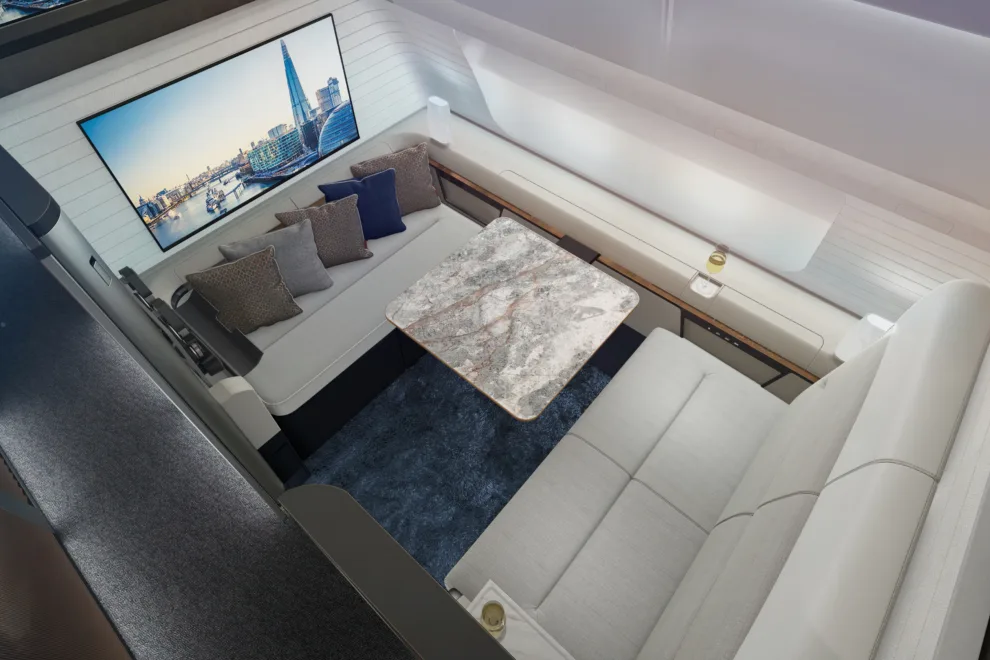
Future Systems Simulator wins iF Award
We are delighted to announce that the Future Systems Simulator (FSS) designed and built by DCA for Rolls-Royce and now in regular use at the Aerospace Integration Research Centre (AIRC) at Cranfield University has won an iF Design Award in the Product User Experience (UX) category.
The FSS is a highly reconfigurable modular flight simulator, designed to be independent of any airframe or manufacturer. By repositioning or removing seats, screens, side sticks, and thrust levers, it can represent anything from small single seat aircraft to the largest jumbo jets. The FSS builds reassuringly on familiar aircraft controls, with information presented on up to 4 large reconfigurable touch screens and 2 smaller side screens. This allows pilots to explore the potential impact on future flight decks of near-term changes, such as smarter, more autonomous engines, as well as revolutionary new technologies, such as electric, fuel cells and hybrid propulsion.
Rolls-Royce is working with partners like Cranfield University to develop technologies that will continue to deliver the societal benefits and cultural enrichment enabled by air travel, but with net zero carbon emissions by 2050. That means that in the future Rolls-Royce’s power solutions are likely to involve complex sustainable aircraft propulsion systems with hydrogen fuel cells and distributed electric propulsion, all managed by a single pilot. The Future Systems Simulator (FSS) will ensure that the complex intelligence and automation required for this operates collaboratively with pilots to avoid mistakes that could cost hundreds of lives.
The FSS provides an environment that encourages collaboration between pilots, airframe manufacturers and propulsion system suppliers, helping shape the design of new integrated aviation systems that will deliver substantial environmental and safety benefits. It allows near boundless flexibility to explore innovative ways that pilots can interact with these new aircraft systems, laying the foundations for a fundamental change in the philosophy of flying aircraft in the future.
Flight simulators are typically used as training aids for pilots. By contrast, the FSS is a uniquely flexible open and interactive test environment that Rolls-Royce describe in the media as “one of our cleverest pieces of digital technology, supporting research into the future of flight”. The data it provides will be fundamental to Rolls-Royce’s core research goals of propulsion system optimisation, power system and aircraft integration, and the exploration of novel, more sustainable propulsion technologies.
The FSS is constructed from high-quality components in a modular machined aluminium framework mounted on a fabricated steel base. It was engineered and built to withstand the rigours of disassembly and reconfiguration, and extreme in use loading from pilots at times of stress. The clean, open and uncluttered design encourages pilots to engage, explore and challenge existing aviation norms.
The harmonised digital and physical interfaces are unique to the FSS. Using touchscreens provides the greatest opportunity for reconfiguration and allows pilots to access greater depths of information to support their decision making and explore new approaches to flying aircraft. However, such technology is still relatively new on flight decks, so existing physical aviation interfaces are referenced in a way that is reassuringly familiar and intuitive. As a result, pilots can use the FSS user interfaces immediately with minimal training.
Information is functionally grouped and displayed where and how pilots would expect to find it within the digital-physical platform. The information itself changes with context and pilot preferences to aid human-machine collaboration, thereby improving pilot performance.










